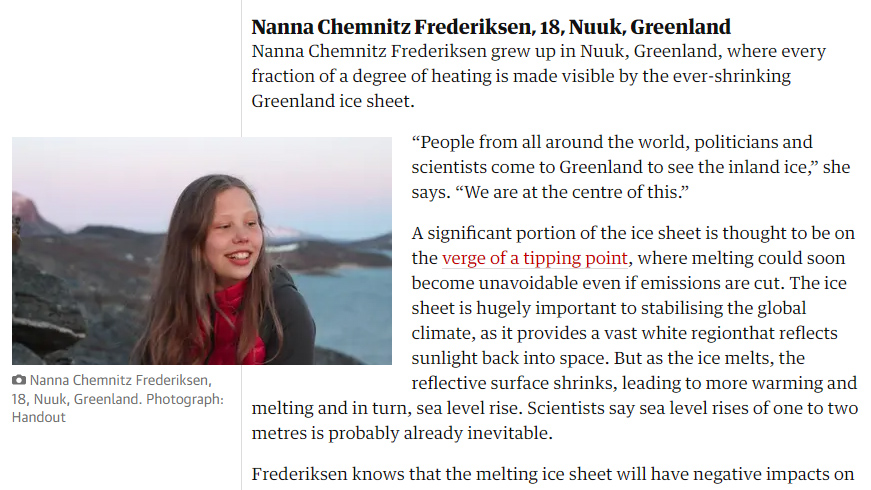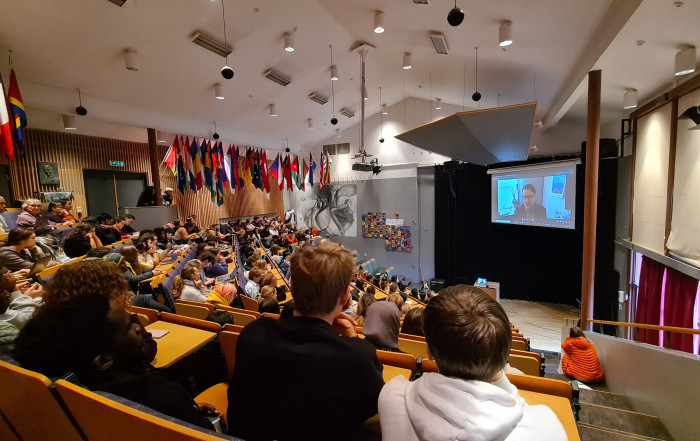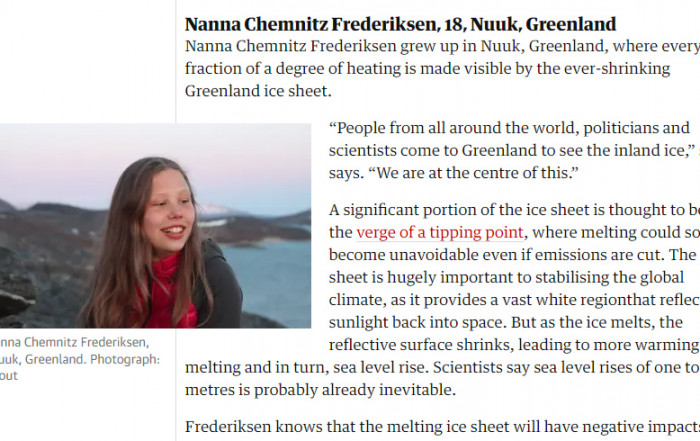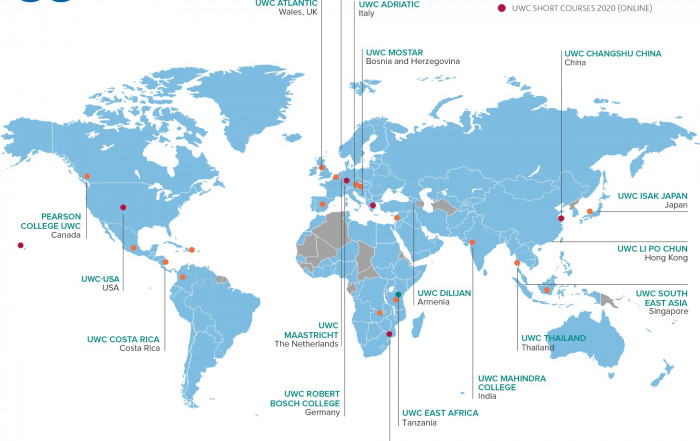“People from all around the world, politicians and scientists come to Greenland to see the inland ice,” she says. “We are at the centre of this.”
A significant portion of the ice sheet is thought to be on the verge of a tipping point, where melting could soon become unavoidable even if emissions are cut. The ice sheet is hugely important to stabilizing the global climate, as it provides a vast white region that reflects sunlight back into space. But as the ice melts, the reflective surface shrinks, leading to more warming and melting and in turn, sea level rise. Scientists say sea level rises of one to two metres is probably already inevitable.
Frederiksen knows that the melting ice sheet will have negative impacts on communities across Greenland, especially in northern settlements such as Qaanaaq where permafrost melting is destabilizing homes and roads and impacting how fishers and hunters operate.
But her real concern lies on the impact it will have globally. “I am not so scared of what the effects of the melting of ice in Greenland will be,” Frederiksen says, “It scares me what effect it can have for the rest of the world.”
Latest News
Finnish delegate to COP26 online at RCN
Thursday 11th November Ville Niinistö, former Minister of Environment for Finland, now Member of the European Parliament, had an online with all our students, who gathered in the auditorium. He was part of [...]
Young activist from Greenland in The Guardian about climate change
As the world is looking to Glasgow and COP26, it is important to listen to the voices who can contribute towards finding solutions that prevent climate breakdown. Our student Nanna C. Fredriksen (Greenland) is [...]
Welcome to Faith Abiodun!
Faith Abiodun will join UWC International as its new Executive Director based in London, starting 1 December. Originally from Nigeria, he is an education and social enterprise leader, international affairs analyst, writer and [...]




